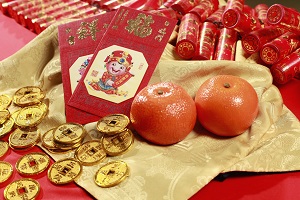The Duan Wu Jie (端午节), also commonly known as the Dragon Boat Festival, fall on the 5th day of the 5th Chinese lunar month.
It is sometimes also known as Zhong Xiao Jie (忠孝节) or Tian Zhong Jie (天中节). As if it needs more aliases, food lovers identify this day as the Dumpling festival.
Duan wu marks a day for families in the house hold to rid all family members of toxins and for good luck in health.
While dragon boats make their appearances on the river banks, households get busy with creating and making rice dumplings with their own recipes.
The rice dumplings are more affectionately known as Ba Zhang (肉粽), which is a Hokkien dialect referring to the addictively delicious dumplings to feast on, or Zong Zi (粽子) in Mandarin.
Origins of Duan Wu festival
The most widely acknowledged folklore of how this day became a day of celebration was about a highly revered poet and minister Qu Yuan who lept into the Liluo river in despair for the fall of the Chu capital. The people jumped in to save him but amazingly could not find him or his body.
People set off in boats in the search and also to frighten off fishes. The villagers then threw sticky rice balls into the river in an effort to coax fishes not to eat Qu’s body but feed on the rice balls instead. Rice balls were slowly refined into rice dumplings as time passed.

In another legend, a character by the name of Wu Zixue fled Chu for Wu territory when his family was killed. He then played a prominent role in helping Wu conquer the Chu capital. When Zhixue realized that his revenge was incomplete as the king of Chu has already died, he dug up the king’s corpse to whip it as redemption for his family’s death.
The king of Yu then tried to cozy up to the king Fuchai of Wu. Zixue was strongly against a peaceful alliance and advised Fuchai against it. The latter disagreed and call the former’s action as treason. He then asked Zixue to commit suicide. His body was wrapped in leather and thrown into the river on the 5th day of the 5th month. As such, the people celebrated Duan Wu jie as a remembrance of the great man.
Then there is also the filial story of a young girled named Cao Er. Her father was a respected shaman who oversaw cultural and religious ceremonies. During one such ceremony for Duan Wu Jie to commemorate Wu Zixue, he accidentally fell into the river and disappeared.
Heartbroken, Cao Er who was a child cried at the riverbank for 17 days. She then jumped into the river from sorrow. Her body emerged together with the father’s corpse 5 days later. This miraculous tale spread far and fast. Years later, a temple was erected for Cao Er which stands to this day in Shaoxing. The river she jumped into was named Cao Er river.
Traditional practices during Duan Wu
The dragon boat races get the most publicity as these are events for the masses to congregate and join in the festivities.
This originated from the boat searches conducted to find Qu Yuan as mentioned earlier.
But while all the fanfare goes to the dragon boat races, most people are quietly craving for the rice dumpling delicacies to feast on.
So popular are these food items that in many countries in Asia, there are shop fronts set up dedicated to sell these dumplings in different flavors and fillings.
Other than the above 2 customs that grab most of the headlines, the fifth month of the lunar year is generally believed to be a month of transition as spring moves to summer, creating a confused state of yin and yang energy. This has basis in the calendar of the heavenly stems and earthly branches (干支纪历).
This gives rise to the ideal conditions for evil to thrive.
For this reason, it is not uncommon to see houses putting up posters of the infamous ghost catcher ZhongKui, or talismans to scare off evil.
For this reason, the 5th day of the 5th lunar month is widely known as the best day for Taoists to have talismans created.
Some other smaller cultural practices include getting children to take medicated baths, carrying colored ribbons, apply realgar, etc.















